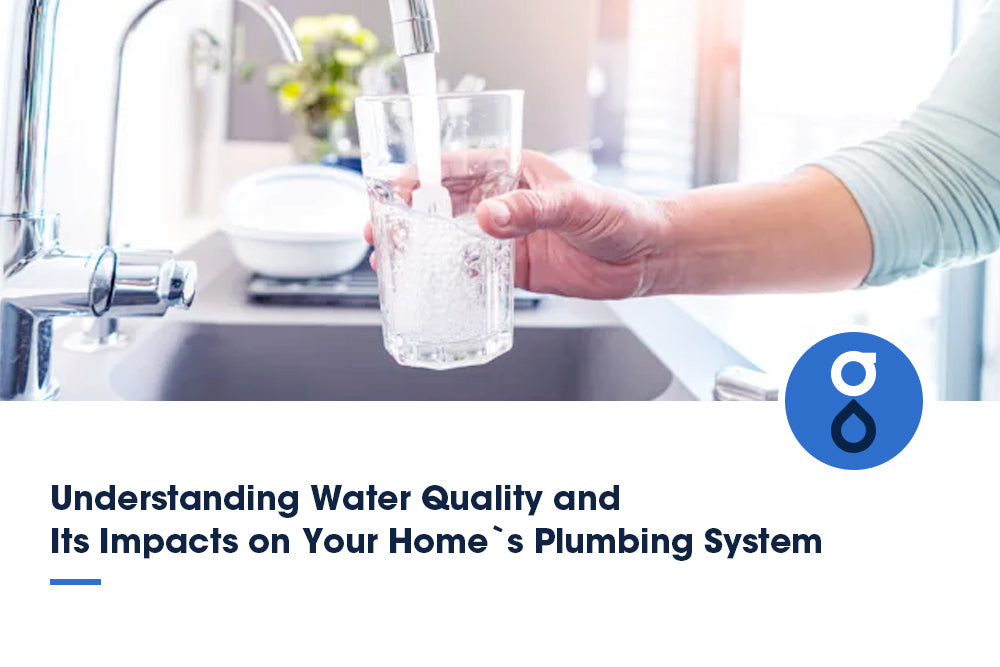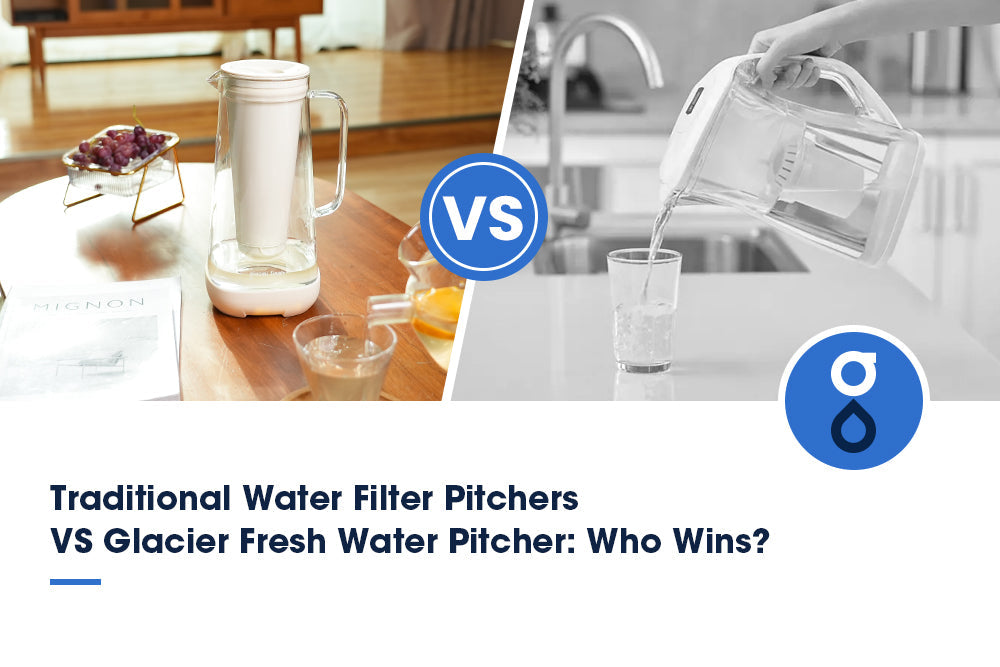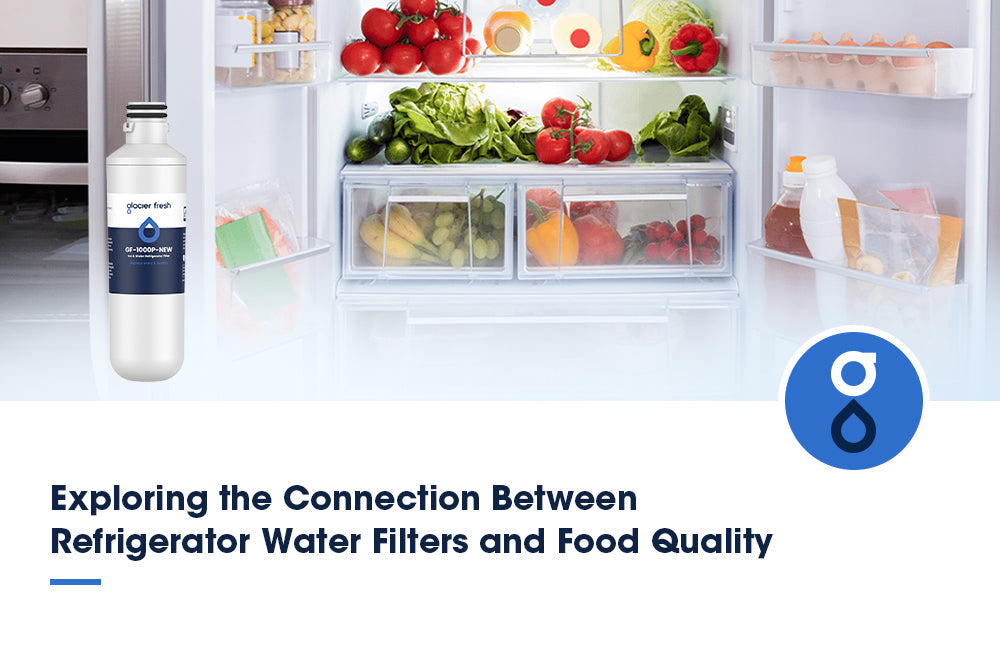Table of Contents:
What is the water quality?
Why the water quality matters?
Impact of poor water quality on plumbing systems
Ways to improve the quality of your home`s plumbing system
Necessary maintenance tips for good water quality
FAQs
Conclusion
Are you tired of dealing with constant plumbing issues in your home? Well, buckle up because we're about to dive into the world of water quality and its impact on your plumbing system! Understanding the quality of the water flowing through your pipes is crucial, and it can dramatically affect the overall health of your plumbing.
Poor water quality can wreak havoc on your home, from clogged pipes to corroded fixtures. But fear not! By assessing and improving your water quality, you can keep your plumbing system running smoothly and avoid those pesky repairs. So let's get started on this journey to a healthier, happier home!
What is the water quality?

Water quality refers to the chemical, physical, and biological characteristics of the water that flows through your home's plumbing system. Understanding the water quality you use for drinking, cooking, and cleaning is essential.
Water treatment plays a crucial role in maintaining good water quality. Treatment processes involve removing impurities, such as bacteria, viruses, minerals, and chemicals, to ensure the water is safe and healthy for consumption. Without proper treatment, water contamination can occur, leading to potential health risks.
Water testing is a vital step in assessing water quality. It involves analyzing samples to determine contaminants' presence and measure various parameters, such as pH levels, turbidity, and chlorine concentration. Regular testing allows you to identify any potential issues early on and take appropriate actions to address them. It's recommended to test your water at least once a year or if you notice any changes in taste, color, or odor.
Why the water quality matters?
Your water quality directly affects the performance and longevity of your home's plumbing system. It is essential to understand why water quality matters to ensure the health and functionality of your plumbing. Poor water quality can lead to various issues, including corrosion, clogging, and damage to your pipes and fixtures.
Additionally, it can harm your health if consumed or used for everyday activities like bathing and cooking. To illustrate the importance of water quality, let's consider the following table:

Water quality testing allows you to identify any issues in your water supply, enabling you to take necessary actions to resolve them. By understanding the health effects of poor water quality, you can protect yourself and your family from potential hazards. Water treatment plays a crucial role in improving water quality by removing impurities and ensuring the safety of your home's plumbing system.
Impact of poor water quality on plumbing systems
Poor water quality can have a detrimental impact on your plumbing system.
Bacterial growth and heavy metals in pipes
Bacterial contamination in the pipes can lead to foul odors, water discoloration, and potential health hazards. These bacteria can thrive in stagnant water or areas with low water flow, so it's essential to ensure proper water circulation to prevent their growth. Additionally, heavy metals such as lead, copper, or iron in the pipes can cause corrosion and lead to pipe degradation over time. Regular water testing is crucial to identify bacterial contamination or heavy metals in your water supply. Implementing corrosion prevention measures and addressing these issues promptly can help protect your plumbing system from further damage
Stagnant and sluggish water flow

If you notice stagnant or sluggish water flow in your home, it may be a result of poor water quality's impact on your plumbing system. Corroded pipes and water contamination can significantly affect water flow through your plumbing system, reducing water pressure and slow drainage.
When pipes become corrupted due to poor water quality, they can develop clogs and blockages, causing water to flow slowly or not at all. Additionally, water contamination can lead to the buildup of sediment and minerals within the pipes, further restricting water flow.
It's essential to regularly maintain and clean your plumbing system to address this issue. This may involve plumbing repairs, such as replacing corroded pipes or installing water filtration systems to improve water quality and prevent future problems with stagnant or sluggish water flow.
Pressure issues from low-quality water
Experiencing low water pressure is a common issue that can arise due to the presence of impurities in your home's water supply. Rust issues, mineral buildup, and water pressure problems are some of the consequences of poor water quality. When your water supply contains high levels of rust and minerals, it can accumulate sediments in your plumbing system, causing blockages and reducing the flow of water. This can result in decreased water pressure throughout your home. To help you visualize the impact of low-quality water on your plumbing system, take a look at the table below:

Ways to improve the quality of your home`s plumbing system
To improve the quality of your home's plumbing system, you can take a few key steps.
Cleaning and sanitizing the plumbing system regularly
You should regularly clean and sanitize your plumbing system to improve its quality. Maintaining a clean and sanitized plumbing system not only ensures the longevity of your pipes and fixtures but also helps to prevent the buildup of harmful bacteria and contaminants in your water supply. Here are three effective ways to clean and sanitize your plumbing system:
- Use cleaning techniques such as flushing your pipes with hot water and vinegar solution or baking soda and lemon juice. These natural remedies can help remove mineral deposits and eliminate unpleasant odors.
- Consider hiring professional services for a thorough cleaning and sanitizing of your plumbing system. Professionals have the expertise and specialized equipment to effectively clean and disinfect your pipes.
- Try DIY methods like using a pipe snake or auger to remove clogs and blockages. Regularly cleaning your drains can prevent buildup and ensure smooth water flow.
Installing a high-quality water filter or softener
Consider installing a high-quality water filter or softener to significantly improve the quality of your home's plumbing system. Water filtration systems are designed to remove impurities and contaminants from your water supply, ensuring that you have clean and safe water flowing throughout your home.
By installing Gravity-fed Water Filter System, you can eliminate harmful substances such as chlorine, sediment, and bacteria, resulting in better tasting and healthier water. Additionally, a water softener can provide numerous benefits for your plumbing system. It helps to reduce the build-up of mineral deposits, preventing clogs and prolonging the lifespan of your pipes and appliances.
When choosing the right water treatment method, consider factors such as the quality of your water, your budget, and your specific needs. Consulting with a professional can help you make an informed decision and ensure that you select the most suitable filtration or softening system for your home.
Ensuring proper flow and pressure in the pipes
The quality of your home's plumbing system can be improved by ensuring optimal flow and pressure in the pipes. Proper maintenance techniques are vital in preventing common plumbing problems and maintaining a steady water pressure. Here are three ways to ensure an appropriate flow and pressure in the pipes:
- Regularly inspect and clean the plumbing system: Over time, debris, mineral deposits, and sediment can accumulate in the pipes, causing blockages and reducing water flow. Inspecting and cleaning the pipes can help maintain proper flow and prevent clogs.
- Check for leaks and fix them promptly: Leak wastewater and reduce water pressure. Regularly check for leaks in faucets, toilets, and pipes. If you find any, fix them promptly to maintain optimal water pressure throughout your home.
- Install a water pressure regulator: Water pressure that's too high can put stress on the plumbing system and cause damage. Installing a water pressure regulator can help regulate and maintain the ideal water pressure, preventing excessive strain on the pipes and ensuring a smooth flow.
Necessary maintenance tips for good water quality

Regularly clean and maintain your plumbing system to ensure good water quality. By following these maintenance techniques, you can prevent contaminants from entering your water supply and protect your health and the longevity of your plumbing system.
One crucial step is to conduct regular water testing. This will help you identify any potential issues with your water quality, such as high levels of bacteria, minerals, or chemicals. You can hire a professional to test your water or use DIY test kits readily available in the market. Another effective way to improve water quality is by installing filtration systems. These systems can remove impurities from your water, such as sediments, chlorine, and lead. Various types of filtration systems are available, including activated carbon filters, reverse osmosis systems, and UV filters. You should choose a system that best suits your needs and budget.
Regularly maintaining your plumbing system and using these water treatment methods will help ensure that clean and safe water flows through your faucets. By taking proactive steps, you can protect your health, extend the lifespan of your plumbing system, and enjoy the benefits of good water quality.

FAQs
Are there any specific signs or indicators suggesting a plumbing system is negatively impacted by poor water quality?
If you notice discolored water, low water pressure, or frequent plumbing repairs, it could be a sign of poor water quality affecting your plumbing. Regular water quality testing and installing filters can help improve your plumbing system's water quality.
Is it possible to test the water quality in a home's plumbing system without professional assistance?
Yes, you can use DIY kits or hire water testing companies to analyze the contaminants present.
Conclusion
In conclusion, understanding water quality and its impact on your home's plumbing system is crucial. Poor water quality can lead to corrosion, clogs, and damage to pipes and fixtures. Improving water quality is essential, such as installing a water filtration system and regularly maintaining your plumbing system. By ensuring good water quality, you can extend the lifespan of your plumbing system and avoid costly repairs in the future.


















